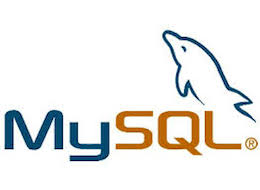How To Install MySQL on Ubuntu 22.04 LTS

In this tutorial, we will show you how to install MySQL on Ubuntu 22.04 LTS. For those of you who didn’t know, MySQL is an open-source relational database management system. It is developed and supported by Oracle Corporation. MySQL is available on other platforms and operating systems including Linux, Unix, Mac, and Windows.
This article assumes you have at least basic knowledge of Linux, know how to use the shell, and most importantly, you host your site on your own VPS. The installation is quite simple and assumes you are running in the root account, if not you may need to add ‘sudo‘ to the commands to get root privileges. I will show you the step-by-step installation of the MySQL database server on Ubuntu 22.04 (Jammy Jellyfish). You can follow the same instructions for Ubuntu 22.04 and any other Debian-based distribution like Linux Mint, Elementary OS, Pop!_OS, and more as well.
Prerequisites
- A server running one of the following operating systems: Ubuntu 22.04, 20.04, and any other Debian-based distribution like Linux Mint.
- It’s recommended that you use a fresh OS install to prevent any potential issues.
- SSH access to the server (or just open Terminal if you’re on a desktop).
- An active internet connection.
- A
non-root sudo useror access to theroot user. We recommend acting as anon-root sudo user, however, as you can harm your system if you’re not careful when acting as the root.
Install MySQL on Ubuntu 22.04 LTS Jammy Jellyfish
Step 1. First, make sure that all your system packages are up-to-date by running the following apt commands in the terminal.
sudo apt update sudo apt upgrade
Step 2. Installing MySQL 8 on Ubuntu 22.04.
By default, MySQL is available on Ubuntu 22.04 base repository. Now run the following command below to install the latest version of MySQL 8 to your Ubuntu system:
sudo apt install mysql-server
After successful installation, enable MySQL (to start automatically upon system boot), start, and verify the status using the commands below:
sudo systemctl enable mysql sudo systemctl start mysql sudo systemctl status mysql
You can verify the version of MySQL installed by executing:
mysql --version
You should see the MySQL version in the following output:
mysql Ver 8.0.30-0ubuntu0.22.04.1 for Linux on x86_64 ((Ubuntu))
Step 3. Securing MySQL Database.
By default, MySQL is not hardened. You can secure MySQL using the mysql_secure_installation script. you should read and each step carefully which will set a root password, remove anonymous users, disallow remote root login, and remove the test database and access to secure MySQL:
mysql_secure_installation
Configure it like this:
- Set root password? [Y/n] y - Remove anonymous users? [Y/n] y - Disallow root login remotely? [Y/n] y - Remove test database and access to it? [Y/n] y - Reload privilege tables now? [Y/n] y
Login to the MySQL database server with the MySQL root user and the password you set during installation:
mysql -u root -p
Output:
Enter password: Welcome to the MySQL monitor. Commands end with ; or \g. Your MySQL connection id is 10 Server version: 8.0.30-0ubuntu4 (Ubuntu) Copyright (c) 2000, 2022, Oracle and/or its affiliates. Oracle is a registered trademark of Oracle Corporation and/or its affiliates. Other names may be trademarks of their respective owners. Type 'help;' or '\h' for help. Type '\c' to clear the current input statement. mysql>
Congratulations! You have successfully installed MySQL. Thanks for using this tutorial for installing the MySQL database on Ubuntu 22.04 LTS Jammy Jellyfish system. For additional help or useful information, we recommend you check the official MySQL website.